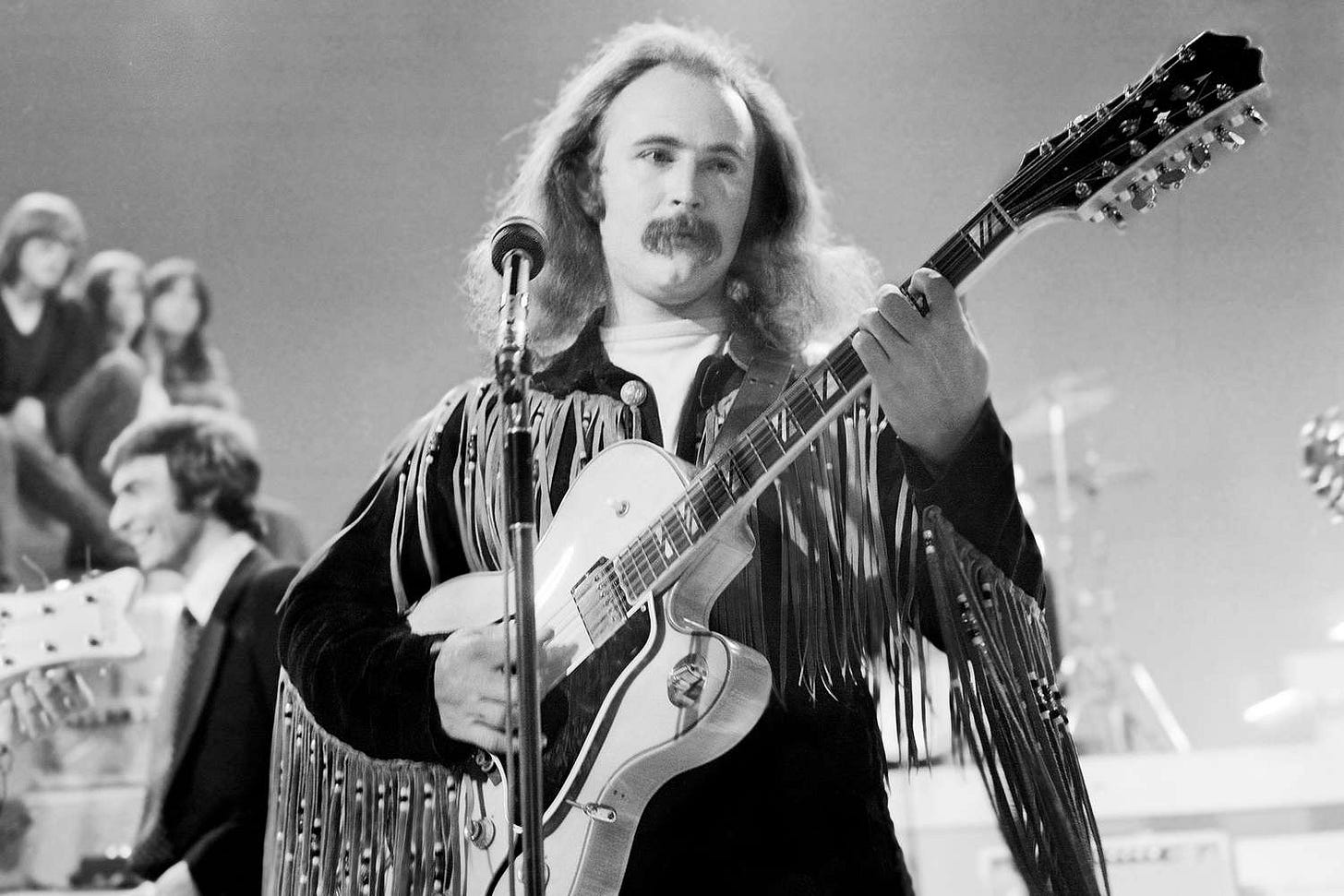David Crosby
David Crosby, a pivotal figure in the landscape of American rock and folk music, left an indelible mark through his work.
David Crosby, a pivotal figure in the landscape of American rock and folk music, left an indelible mark through his work with The Byrds, Crosby, Stills & Nash (CSN), and Crosby, Stills, Nash & Young (CSNY), as well as his solo career. His journey through the realms of music, personal struggle, and activism paints a vivid picture of a complex artist whose legacy spans over five decades.
Early Life
David Van Cortlandt Crosby was born on August 14, 1941, in Los Angeles, California. The son of cinematographer Floyd Crosby, David was exposed to the arts at a young age. His interest in music blossomed early, and by the late 1950s, he was actively pursuing a career in music.
The Byrds
Crosby's music career took off in the mid-1960s when he co-founded The Byrds with Roger McGuinn, Gene Clark, Chris Hillman, and Michael Clarke. The band's blend of Beatle-esque pop and folk music, marked by their signature 12-string Rickenbacker guitar sound and harmonious vocals, led to instant success. Their cover of Bob Dylan's "Mr. Tambourine Man" became a hit, pioneering the folk-rock genre. However, Crosby's tenure with The Byrds was fraught with tension, and by 1967, after disputes over the band's musical direction, he was dismissed from the group.
Crosby, Stills & Nash (and Young)
After leaving The Byrds, Crosby formed Crosby, Stills & Nash (CSN) with Stephen Stills of Buffalo Springfield and Graham Nash of The Hollies. Their eponymous debut album in 1969 was a groundbreaking success, showcasing their intricate harmonies and introspective songwriting. Neil Young, also a Buffalo Springfield alumnus, joined the group shortly after, creating Crosby, Stills, Nash & Young (CSNY). The quartet's performance at Woodstock and their subsequent album, "Déjà Vu," cemented their status as counterculture icons.
Solo Career and Collaborations
Despite the success with CSN and CSNY, Crosby also pursued a solo career and collaborative projects. His first solo album, "If I Could Only Remember My Name" (1971), featured a who's who of the era's musicians and received critical acclaim. Throughout the 1970s and beyond, Crosby's work with Graham Nash produced several albums, showcasing their tight harmonies and musical chemistry.
Personal Struggles and Advocacy
Crosby's life was marked by significant personal struggles, including drug addiction, health issues, and legal problems, which often overshadowed his musical achievements. Despite these challenges, he remained a vocal advocate for political and environmental causes, leveraging his celebrity to raise awareness.
Later Years and Legacy
In his later years, Crosby experienced a creative renaissance, releasing a series of solo albums that were well-received by critics and fans alike. His outspokenness, coupled with his dedication to music and activism, ensured he remained a relevant figure in the music industry and popular culture.
David Crosby passed away on January 18, 2023, leaving behind a complex legacy as both a gifted musician and a flawed human being. His contributions to music, characterized by his distinctive voice, harmonious songwriting, and innovative spirit, have left an indelible mark on the American musical landscape. Crosby's influence continues to resonate, not just in the work of contemporary musicians who cite him as an inspiration, but also in the enduring appeal of the songs he helped bring to life.


